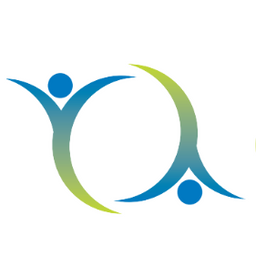Topic: Open pedagogy and OER
My Session Status
An approach of OER-enabled pedagogy: Designing a professional development OER about OER
as part of a graduate level course experience
Ji Yae Bong, Rachel Harris, Samira Karim, Yuan Chen, Gabrielle Adam, Celine Reyes,
and Alexandra Maria Almonte, Concordia University
Track: Learning experience design/ Volet: Conception des expériences d’apprentissage
Type: Innovative teaching, technology or design technique:
Name of the innovation:
An approach of OER-enabled pedagogy: Designing a professional development OER about OER as part of a graduate level course experience
Type of innovation: Teaching
How the innovation works:
The usage and acceptance of OER in Quebec’s higher education institutions (HEIs) remains low and is not utilized completely (Canadian Digital Learning Research Association [CDLRA], 2018). Instructors and librarians in Quebec HEIs have gradually joined working groups on OER, including open textbooks. However, an intentional approach is required to envision and develop OER beyond its most basic usage—adopting open and cost-free textbooks—into its potential uses to promote the use of technologies for learning, advance sustainability of quality OER, and encourage informal and lifelong learning (Allen & Seaman, 2016; Padhi, 2018).
This innovative work highlights a solution that applies renewable assignments as an approach to OER-enabled pedagogy in two graduate-level courses at Concordia University in 2021. Renewable assignments, as opposed to disposable assignments, allow students to create OER and openly publish their work. The student-created OER in our case was a website that offers professional development resources for instructors, faculty, instructional designers, and the general public who wants to learn about OER, teach about OER, create OER, and implement OER-enabled pedagogy at all levels. The renewable assignment included (a) reviewing the existing student-created OER on the same topic, (b) curating or producing knowledge related to the assigned topic, (c) developing learning modules of the website, and (c) doing quality assurance reviews of other modules. At the end of the seminar, students were required to submit a portfolio of their work on the professional development OER for assessment.
How to apply the technique:
Our approach of applying renewable assignments was adapted from the previous teaching efforts made by Dennen and Bong in 2014 and 2020 (Dennen & Bong, 2015; In Press); and Davidson and Ariely in 2013 (Davidson, 2012 a; 2012b). Our solution, the application of renewable assignments in the graduate-level courses, embraces open pedagogy and flexibility and provides content-based learning experience as well as authentic instructional design experience.
The instructor and teaching assistants were the learning experience designers and facilitators, and the students took the roles of curator, knowledge producer, or OER creator. The students participated in the overall collaborative design, development, and quality assurance review process for the OER.
Co-Creation in Course Design: Liberating Critical Consciousness Through Integrating Open-Access Simulations, Online Modules, and International Partnerships
Laura Killam, Marian Luctkar-Flude, Queen's University
and Jane Tyerman, University of Ottawa
Track: Evidence-based practices in teaching / Volet: Pratiques de l'enseignement fondées sur des preuves
Type: Innovative teaching, technology or design technique:
Name of the innovation:
Co-creation with learners is an innovative practice rooted in open pedagogy.
Type of innovation: Teaching
How the innovation works:
By role-modeling reflective practice through dialogue-based debriefing of high-quality open access simulations and online modules students can develop the confidence and skills to advocate for vulnerable populations. In this same course students were invited to co-create aspects of the course syllabus. For educators working in larger classes moving towards more student-centered and empowering approaches to teaching may be challenging. In this presentation we highlight how leveraging partnerships like CAN-Sim can help educators design learning experiences that feel empowering and are interactive.
How to apply the technique:
We discuss 1) how online simulations and modules were used in one course context encourage reflective in-class dialogue; 2) the process used to co-create the syllabus through in-class discussions, online forms, in-class polling, and emails; and 3) how engagement with CAN-Sim strengthened both student and educator experiences.
Team-based Approach for Development of Quality Online SFM Courses with OER Content
through International Collaboration
Guangyu Wang, Hailan Chen, Chris Crowley, Michelle Zeng, Anil Shrestha, and Na Zhong,
The University of British Columbia
Track: Partnering with Faculty and administration / Volet: Partenariat avec le corps professoral et l'administration
Type: Innovative teaching, technology or design technique:
Name of the innovation:
Team-based Approach for Development of Quality Online SFM Courses with OER Content through International Collaboration
Type of innovation:
Team-based approach for international collaboration on course development
How the innovation works:
In responding to the need of the changing world to provide flexible, equitable, accessible, and effective forestry education aimed at helping forestry stakeholders to acquire most current knowledge of SFM in the Asia Pacific (AP) region, UBC Faculty of Forestry in partner with the UBC CTLT and all AP-FECM member organizations has dedicated on the Sustainable Forest Management (SFM) educational online program for 10 years. Based on the successful international collaboration in Phase I of the program completed in 2016, in Phase II of the program wrapped up in 2021, 14 graduate level certificate online courses with its fundamental content as Open Education Resources (OER) were developed through international collaboration once again from 5 AP-FECM member universities.
A team-based approach to content development, learning design and project management was established to support the course development. UBC Forestry was the project and academic lead. UBC CTLT provided central support on learning and instructional design for each course. Each course formed an international course development team typically with a lead professor and multiple co-authors dedicated in developing the course. Content developers and media support assistants were involved as needed at member universities. The course development followed a modified ADDIE (Analyze, Design, Develop, Implement, and Evaluate) instructional design model. Quality Matters (QM) quality standard for online course design was introduced and used as guidance and self and peer-review instrument for quality online course development. As the results of collaborative efforts, 14 quality SFM courses were developed and with which a systematic curriculum was created covering a foundation of forest management and governance policies, conservation and forest sciences and so on.
The courses have been designed for catering the diverse needs and future development. Learning modules were broken down to weekly topics for easy repurpose and the OER course materials typically consist of background information, video lectures, supplemental readings, self-test, and self-directed reflection questions. This module-based format allows instructors to easily incorporate appropriate content into their own courses and allows institutions to customize and integrate the entire or ‘parts of’ each course to fit into their own education curricula and programs. This pedagogical model allows both self-paced learning and instructor-led learning to improve the flexibility and learner engagement thereby assisting the sustainability of this program. It supports flipped, blended, and online teaching approaches. It builds the foundation to potentially new Certificates, and/or Master online SFM programs and will be able to sustain in and be enriched by member universities.





